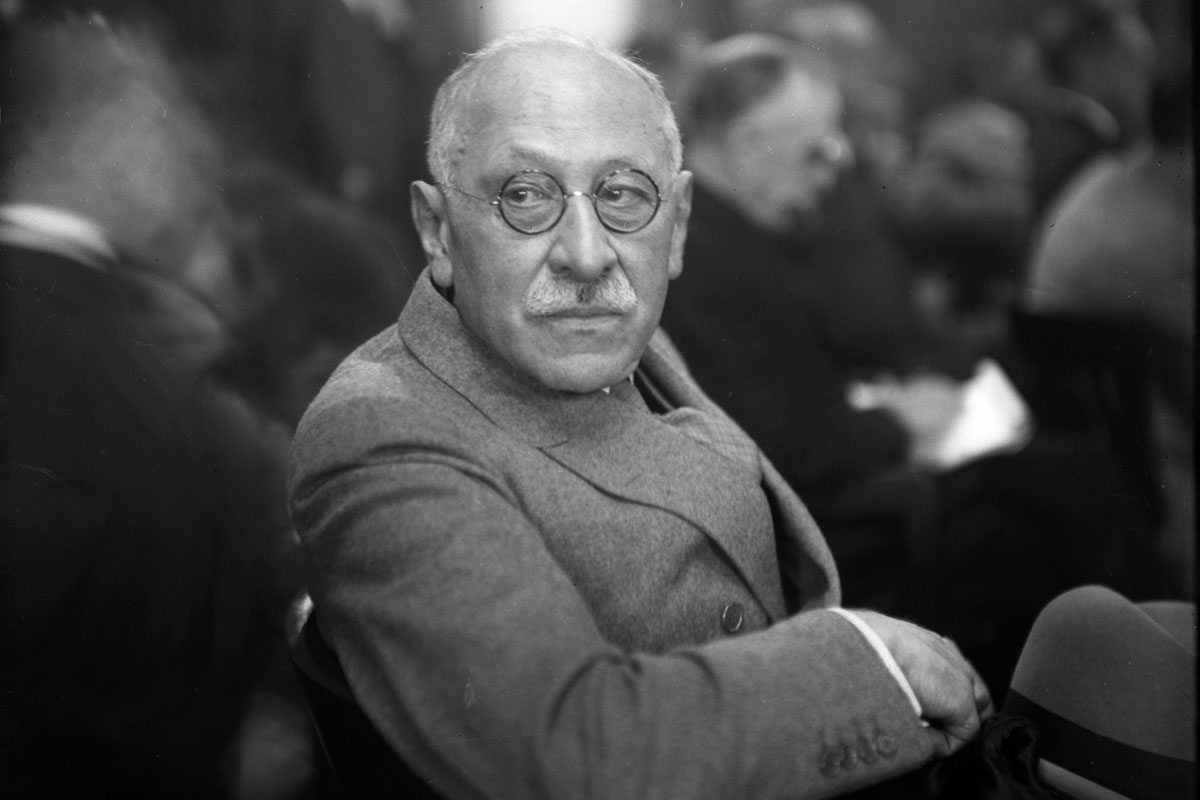In the era of Jim Crow segregation, photos of a Jewish millionaire from Chicago hung on the walls of schoolhouses across the South. The African-American children in these classrooms sometimes asked: Who is that man? “We were told it was the man who built the school,” educator Frank Brinkley recalls in the new documentary Rosenwald.
That man was Hyde Park resident Julius Rosenwald, president of Sears, Roebuck & Co. from 1908 to 1924—“this philanthropist who did not have to care about black people but who did,” civil rights activist Julian Bond says in the film. Rosenwald gave away $62 million, helping build 5,300 schools for black children in the South, replacing rickety shacks. He also funded the creation of the Museum of Science and Industry and the Michigan Boulevard Garden Apartments, which offered better housing for blacks on the South Side. And the Julius Rosenwald Fund (which continued for 16 years after Rosenwald’s death in 1932) awarded fellowships to a stellar roster of black artists: Marian Anderson, James Baldwin, Ralph Ellison, Langston Hughes, and Zora Neale Hurston, to name just a few. “The Rosenwald Fund was the single-most important funding agency for African-American culture in the twentieth century,” poet Rita Dove says in the film.
Rosenwald was inspired to help African-Americans after reading the writings of Booker T. Washington and befriending the pioneering black educator. In 1911, Rosenwald joined the board of directors of Washington’s Tuskegee Institute in Alabama. When he gave the school a $25,000 gift a year later, Washington asked for the money to go toward building rural schools.
The documentary by director Aviva Kempner shows how Rosenwald touched countless lives with his philanthropy. Kempner, whose previous films include The Life and Times of Hank Greenberg, talked about Rosenwald from her home in Washington, D.C.
What drew you to Rosenwald as a subject?
Twelve years ago, I was on Martha’s Vineyard and there was a lecture with Julian Bond and a rabbi named David Saperstein about blacks and Jews and their bond. I thought I was going to hear a talk about the civil rights era, but a lot of it was about Julius Rosenwald. I was on the edge of my seat, and I resolved: I will make a film on this man I thought was incredible. Completely underknown. I cannot tell you how many people who have already seen this at festival settings come out and say, “How come I don’t know this story?” This is scandalous—if it were in Yiddish, shonda—that people just don’t know about him.
Why isn’t he well-known?
He didn’t like having his name on things. He insisted that the Museum (of Science and Industry) not be named after him. And he spent down—he ended his foundation after 25 years.
Did Rosenwald face any backlash from bigots, asking why he was giving to African Americans?
This was the time of Leo Frank [the Jewish man lynched in Georgia in 1915]. Southern Jews were scared for themselves. It was courageous for [Rosenwald] to go down to Tuskegee.
What sort of actions do you hope your film will inspire?
It’s the kind of Judaism I grew up with, which is tikkunolam, repairing the world. What I want people to do is to come out and help one of the (Rosenwald) schools. Or more importantly, do something in their own community. My understanding is Chicago could use some new Rosenwalds.
Rosenwald is now playing at the Century Centre Cinema and Renaissance Place in Highland Park.



